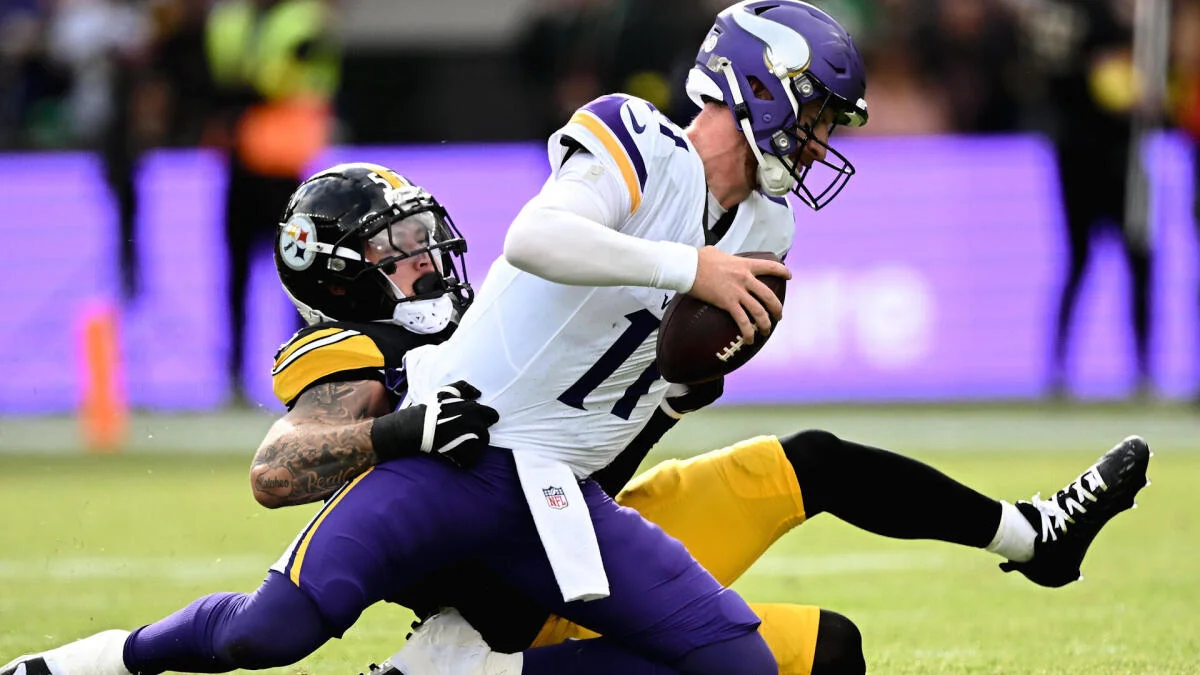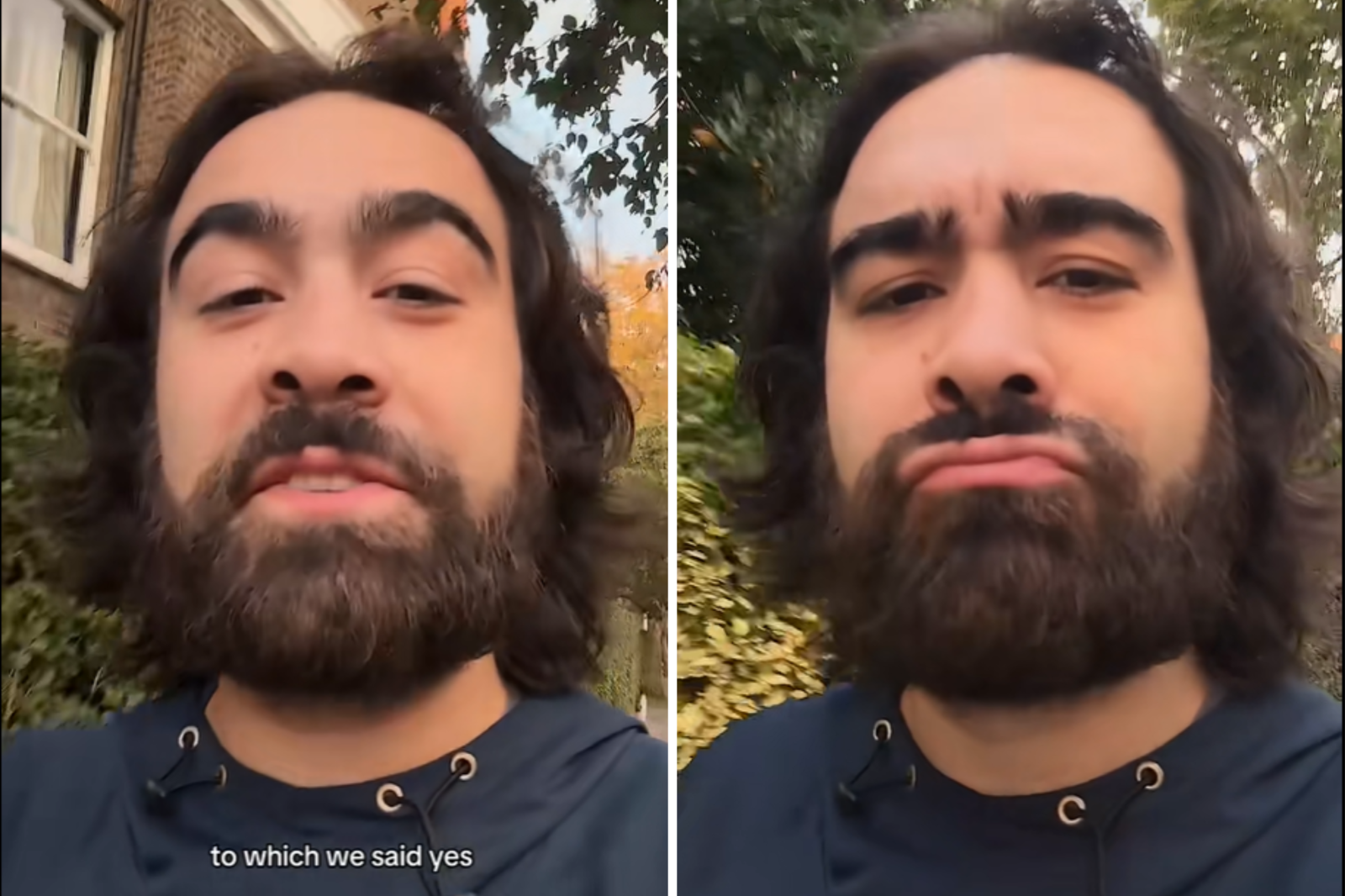Copyright CBS Sports

We're nearing the midway point of the 2025 NFL season, and the Minnesota Vikings may soon be on their third starting quarterback of the year. Coach Kevin O'Connell confirmed as much this week, admitting undrafted rookie Max Brosmer is "an option" in the event Carson Wentz can't stay on the field as J.J. McCarthy's replacement. Just like the Vikings drew it up, right? Of course not. A year ago at this time, not a single one of Minnesota's three signal-callers was active for the team: McCarthy was recovering from a torn meniscus that erased his entire rookie season, Wentz was on the Kansas City Chiefs' bench as Patrick Mahomes' backup, and Brosmer was throwing passes for the Golden Gophers. Yet somehow these three also represent the Vikings' current remaining hopes for a playoff push, one year after Sam Darnold threw 35 touchdowns en route to 14 wins and a flirtation with the NFC's No. 1 postseason seed. Where did it all go wrong? And should the Vikings really be lambasted for the fact it did? The 2025 season isn't over. Minnesota is 3-3 after six games, which is hardly a death knell. Wentz has flashed some of the big-play arm that once made him a regular starter. McCarthy authored a strong prime-time finish prior to suffering an ankle sprain, and he finally appears to be nearing a return to full health. Even Brosmer drew high marks for his preseason composure, suggesting he'd be a willing warrior if called upon. Yet the Vikings will be fortunate to keep pace with the rest of the NFC North at this rate. The Detroit Lions are still a powerhouse. The Green Bay Packers might be, too. The Chicago Bears have won four straight and might finally be hitting their stride under new coach Ben Johnson. The Vikings, meanwhile, may boast an occasionally opportunistic defense under Brian Flores, with some of the game's top pass catchers out wide in Justin Jefferson and Jordan Addison. But a playoff run seems like an increasing fantasy due to the tumult under center. NFL Week 8 Power Rankings: Colts made me eat my words (with hot sauce) as they soar to No. 1 Pete Prisco It's a level of disorder for which Minnesota was clearly not prepared. This season was all about ushering in the J.J. McCarthy era. The 2024 first-round draft pick may have entered this year with zero real NFL experience thanks to his rookie-year injury. But O'Connell and general manager Kwesi Adofo-Mensah underscored his internal value at every turn of the offseason, repeatedly looking the other way when it came to more proven alternatives: First, the Vikings declined to enter a bidding war for Darnold, who sunk under pressure in the final two games of 2024 but captained an explosive offense for much of his first year in town, as he's now doing with the Seattle Seahawks. In some ways, this mirrored the club's polite refusal to pay big bucks to Kirk Cousins the year prior. At the same time, the Vikings also declined to enter a bidding war for Daniel Jones, the ex-New York Giants castoff who finished 2024 on Minnesota's practice squad. Jones now looks like a major bargain for the Indianapolis Colts after signing a modest deal, suggesting the Vikings only viewed him as a true Plan B. As the offseason wore on, the Vikings gave mixed signals about interest in Aaron Rodgers, their longtime Packers rival, repeatedly championing McCarthy's potential while leaving the door open for the veteran. In the end, Rodgers put pen to paper with the Pittsburgh Steelers, who were unafraid to court the former MVP. Not a single one of these moves was entirely objectionable at the time. Consider: Darnold was a legitimate gunslinger for much of 2024 and still relatively young at 27 (now 28), but his end-of-season flameout was so drastic -- and his free agent price tag so steep -- that the one-and-done partnership made some sense. Jones, meanwhile, would've been an even greater -- albeit cheaper -- gamble after struggling to stay healthy or push the ball downfield over more than five years with the Giants. No one had him pegged for such a sharp Indy breakout. And Rodgers, though very accomplished, was 41 years old coming off two bruised and sluggish seasons with the New York Jets. Banking on him rediscovering high-level form would've also meant going "all in" on 2025, effectively redshirting McCarthy for half his initial rookie contract. Instead, the Vikings went the route they took after a half-decade of solid, if unspectacular, work from Cousins: They said thanks but no thanks to the more proven commodities, preferring to lean on infrastructure over a splashier investment under center. They figured the greater setup would be the perfect launching pad for a green youngster like McCarthy. No one questioned the decision internally. Especially not McCarthy's teammates, who kept pointing to the veteran support at the skill spots, the bolstered line featuring new starters in Ryan Kelly and Will Fries, the exotic defense, the proven culture-building of O'Connell. McCarthy himself called the Vikings "stacked" in an interview with CBS Sports, and he drew lots of locker-room praise for the veteran-level composure he learned under Jim Harbaugh at Michigan; if his play were uneven, at least his posture would not be. Except this entire plan hinged on McCarthy's play not being so uneven ... and McCarthy staying on the field in the first place. The 22-year-old looked 22, like an unofficial rookie, in his first two starts of the season, struggling to find a sustainable rhythm through the air. Even before he was revealed to have suffered an ankle injury in Week 2, McCarthy already seemed in danger of ceding snaps to Wentz, who arrived late as the top backup: [Early-career] hiccups are absolutely not a problem ... if the Vikings are intent on playing this slowly, affording their new point guard the patience he might very well require. That's a fine approach to take, and it's one plenty of rebuilding teams have exercised, declining to put the weight of the NFL world on a first-time starter's shoulders. It's just not the approach O'Connell and Co. seemed to take by suggesting they could transition from proven arms like Darnold and, previously, Kirk Cousins and still end up in the thick of the NFC postseason conversation. Speaking of Wentz, he's now the face of the Vikings' predicament, which only serves to magnify the greater blunder. Set aside the pros and cons of Wentz as a quarterback; the one-time Philadelphia Eagles star remains largely the same roller coaster he's been for years, offering both head-scratching gambles and awe-inspiring gusto. What we don't talk enough about is the fact he's at the center of Minnesota's conundrum -- to hurry McCarthy back, or to pivot to Brosmer? -- despite only joining the team on Aug. 24. Look, some quarterbacks can turn around and help a franchise stay afloat on a few days' notice (see: Joe Flacco and the Cincinnati Bengals). But the Bengals had Joe Burrow as their Plan A. The Vikings had McCarthy, a total unknown. They deserve credit for adding Wentz at all, giving O'Connell some actual juice off the bench. They also deserve some pointed questions about waiting until the end of the preseason to acquire said insurance. Did they grossly miscalculate the stability (or lack thereof) of Sam Howell, their initial pick to be McCarthy's backup, when they acquired Howell from the Washington Commanders during the draft? Did they also need all summer to determine they'd botched that bet? And why wait until late April to make that gamble at all? Is it because neither Adofo-Mensah nor O'Connell could make up their minds regarding a last-second pursuit of Rodgers, who didn't actually sign with the Steelers until June? We don't know how the rest of the year will play out, but all of a sudden a one-year Rodgers deal doesn't seem like it would've been such a bad idea. If the infrastructure was so rich, after all, imagine where A-Rod might have Minnesota at this juncture. And imagine how much richer McCarthy might be from watching and learning. But no, the Vikings played a different hand: Why ruin McCarthy's chance at claiming the franchise for himself, and laying the foundation for a long run as "the guy," just to hope an aging has-been can go the distance before retiring? It turns out the choice to let J.J. go unchallenged as the new No. 1 just might ruin any playoff chances instead. At this point, these are just what-ifs. They're revisionist reflections on the past. What's done is done. The Vikings made 2025 about McCarthy. And then McCarthy sputtered out of the gate before going down (again). It should be no surprise, a few weeks later, they're hurting to get things under control at the quarterback position, not so unlike halfway through the 2023 season when Cousins was sidelined and O'Connell was left to squeeze what he could from Joshua Dobbs, another last-minute backup addition, and assorted leftovers. In a weird way, this situation is almost worse, given that Cousins' exit all but gave Minnesota the green light to move on and finally look to the future. McCarthy is -- or was supposed to be -- that future. He was also set up, this year, to be the present. Gambles are gambles. Even if they make sense in the moment, they may not pan out. It's precisely what Minnesota is feeling at this moment. Now the Vikings are hoping, at least for the sake of what's left of 2025, but perhaps also their prospects beyond, that someone -- anyone -- emerges to make it all right.



